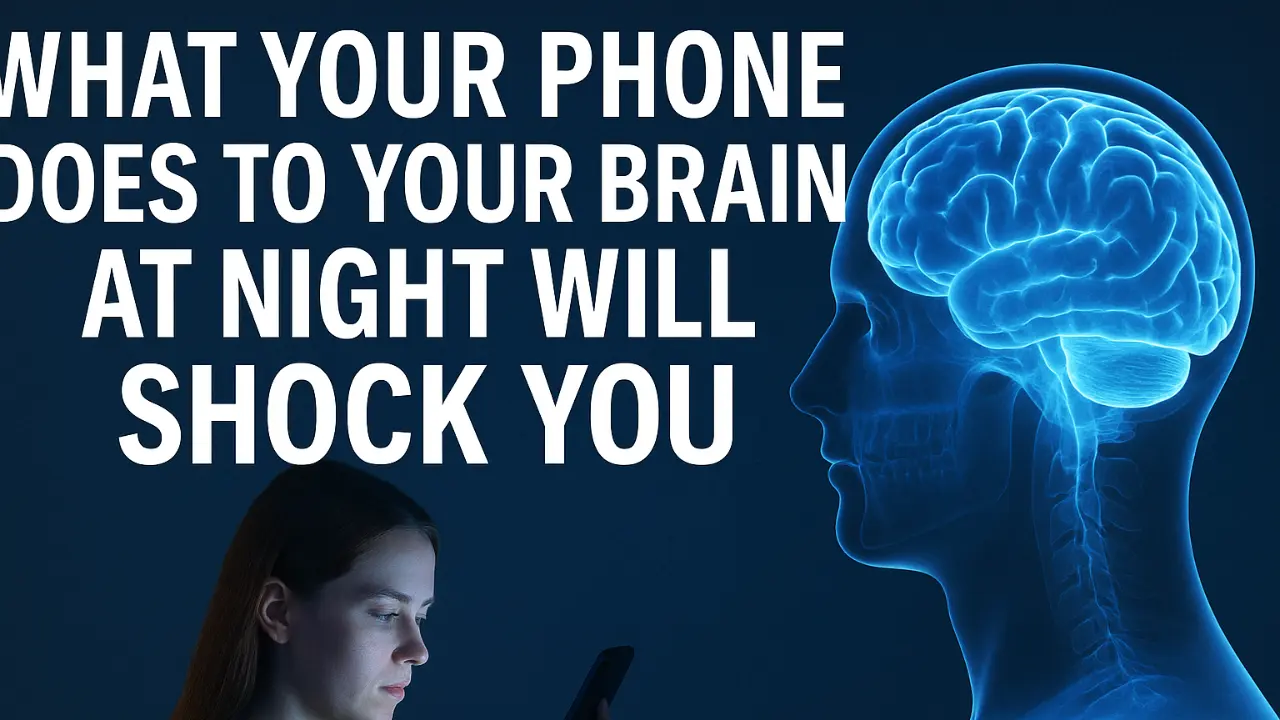You fall asleep with your phone inches away from your head… but have you ever wondered what it’s really doing to you while you sleep?
This story isn’t about fear-mongering—it’s about a quiet truth many people overlook until it affects them personally.
For Sarah Miller, a 29-year-old marketing manager from Oregon, that truth came crashing in the form of crushing fatigue, anxiety, and sleepless nights she couldn’t explain.
It Started With Restless Sleep
“I used to sleep like a baby,” Sarah says, her voice tired. “Then, slowly, I began waking up groggy and anxious. Like I hadn’t slept at all.”
First, she blamed coffee. Then stress. Then maybe her hormones. But after months of exhaustion, headaches, and a mind that wouldn’t quiet down, she found an article that changed everything.
It asked one simple question: Do you sleep with your phone next to your head?
“I remember thinking, Wait… doesn’t everyone?” she says.
A Silent Nighttime Intruder
Most don’t realize that even when your phone isn’t in use, it’s still active—sending out EMFs, checking for notifications, syncing data, and pinging cell towers.
“We assume phones are quiet at night,” says Dr. Karen Blackwell, a neuroscientist who studies sleep. “But they’re not. Even a dim light or a tiny sound can pull your brain out of deep sleep.”
That glow? It disrupts melatonin. That buzz? It steals REM sleep.
Over time, this leads to:
Chronic tiredness
More anxiety
Trouble focusing
A weaker immune system
Is It Affecting Your Brain?
Research isn’t definitive, but some studies suggest long-term EMF exposure during sleep might interfere with memory, recovery, and the brain’s natural cleanup process.
“We’re not saying phones damage your brain,” Dr. Blackwell clarifies. “But we are seeing signs that keeping them close at night could disrupt what your brain needs to repair itself.”
For Sarah, the proof was in her sleep. She started leaving her phone across the room.
“Three nights later, I actually slept through the night,” she says. “I couldn’t believe it.”
Why We Keep Them Close Anyway
Let’s be honest: phones feel safe. Your alarm’s there. Your messages. That midnight scroll.
A 2024 survey found 78% of Americans sleep with their phone within reach. Some even sleep with it under their pillow.
“I told myself I needed it for emergencies,” Sarah admits. “Really, it was just a habit.”
4 Small Changes That Help
Charge it farther away—still close enough for alarms, but not next to you.
Use ‘Do Not Disturb’ or airplane mode.
Block small lights—even tiny LEDs can affect sleep.
Swap scrolling for reading or soft music.
The Real Problem
Sarah still uses her phone constantly—but not in bed.
“I never thought something so normal could mess up my sleep so badly,” she says. “We trust our phones too much. They seem harmless, but they’re not.”
More doctors and researchers are starting to agree. So tonight, ask yourself:
Is your phone really letting you rest… or is it part of why you’re so tired?
Because sometimes, the most dangerous things don’t seem dangerous at all.
